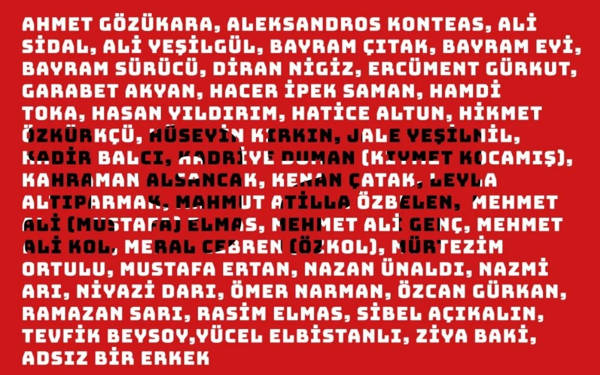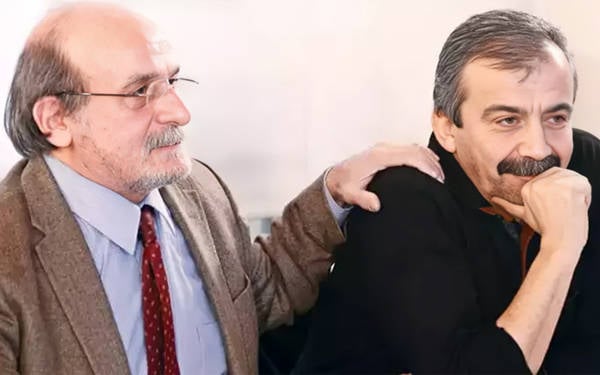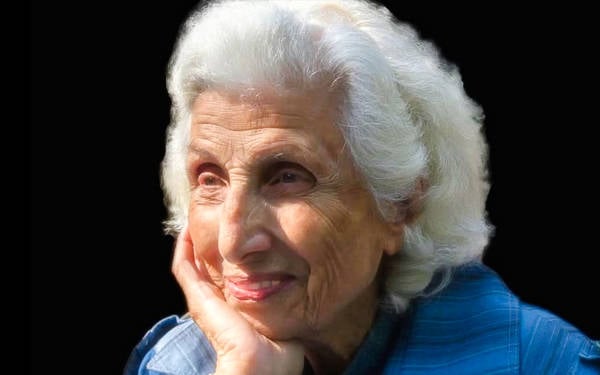media practitioners wondering whether President Ahmet Necdet Sezer will sign the
controversial amendments to media laws, which the Turkish parliament has passed,
or return them to the legislators for review.
If Sezer puts his seal of approval, the new media laws -- that media houses
fear will restrict freedom of press -- will come into force on Jun 21. The
expectation, however, is that the Turkish president will not sign the bill.
Sezer, a former head of Turkey's constitutional court, has deep respect for
the rule of law. He is also known for his support for constitutional reform in
Turkey.
In a widely reported speech last year, he criticised Turkey's constitution,
introduced after a military coup in 1980, as restricting democratic rights and
freedoms.
The Islamists have already appealed to Sezer to return the legislation for a
review. "We are against those amendments, because we are convinced that under
the new laws people's right to access to information will be left to the mercy
of a handful of media moguls and their favourites," said the Islamist daily
'Yeni Safak'.
Nuri Kayis, the head of the state-owned Radio and Television Higher Council
(RTUK), says "the amendments, particularly on media ownership structure, will
create emperors out of media moguls".
Ironically, RTUK's excessive powers to control and punish "unwanted" radio
and TV broadcasts have been sharply criticised by the media and rights
organisations.
RTUK grants radio and TV licenses and allocates transmission frequencies. If
the amendments are signed into law, these tasks will be handed over to the
Telecommunications Higher Council. But RTUK will continue to oversee radio and
TV broadcasts.
"The amendments will spark an unjust competition, allow media moguls to
invest in stock-exchange and speculate on financial markets," says Kayis. "The
major risk is that ownership will be concentrated in the hands of a few and the
(large) media (organisations) will inevitably gain uncontrollable power".
The amendments that the Turkish parliament passed with simple majority votes
on Jun 7 envisage the lifting of almost all the barriers and concentration of
media ownership in the hands of a few.
Even now, big businesses control the bulk of Turkey's mainstream media - more
than 10 national dailies, 17 commercial TV channels, a number of radio stations
as well as weekly and monthly publications. They have stakes in banking,
insurance, tourist industry, health and soccer.
One of them, Dogan Holding controls Turkey's two biggest dailies 'Hurriyet'
and 'Milliyet', another quality newspaper 'Radikal', two national TV stations -
CNN Turk and Kanal D. Dogan Holding has invested in banking and finance,
communications, insurance, health, oil and newspaper distribution. It is also
seeking to carve out a bigger share in the proposed privatisation of the
country's electric power supply systems.
The Bilgin Group, another powerful conglomerate, owns a number of dailies,
television stations and periodicals. It also has invested in the country's
thriving book publishing industry, marketing, security services, insurance and
banking. The group, which owes government at least 1 billion dollars, has
laid-off some 1,000 media workers at its television stations and newspapers.
The Turkish Journalists Association says the "amendments introduce censorship
by way of imposing heavy fines for violations of broadcast guidelines as laid
down by the RTUK."
The current laws permit the RTUK to impose a ban of between one day and one
year on broadcasts considered "offensive". If the Turkish president approves the
amendments, media organisations will be fined between 5,000 and 250,000 dollars.
The RTUK will also enjoy the power to silence the media for one month or
simply shut down a media organisation, if it determines that a particular TV or
radio channel is violating "territorial integrity and Turkey's principles (based
on secularism)".
''This is some kind of death sentence for the local media,'' says Cumhur
Kliccioglu, the owner of 'Mucadele', a newspaper based at Siirt in southeast
Turkey. He says, "no local media can afford to pay such huge fines unless they
sell the whole enterprise. Local media will not succeed with that Damocles sword
hanging above their heads."
Jurist Fikret Ilkiz, an advisor to the Independent Communication Network
(BIA), argues that the amendments contradict universally accepted values of
freedom of expression.
"Turkey has already pledged that it will amend all the country's laws and
regulations to bring them in line with the European Union's guidelines by 2004,"
says Ilkiz. "However these amendments reinforce the present restrictive nature
of the Turkish legislation and constitution."
Ilkiz has urged President Sezer not to sign the amendments and forward the
issue to the constitutional court for final decision.
Ertugrul Ozkok, editor-in-chief of the national daily 'Hurriyet', however,
thinks that the amendments are a gain for the Turkish media community. "With the
new legislation, the ownership structure becomes transparent. Previous
restrictions used to force investors to invest under fake identities," says
Ozkok.
Nuri Colakoglu, chair of TV Broadcasters Association, too is optimistic that
the "amendments will enhance quality of production."
"The media corporations will be able to invest in the stock exchange,'' he
says. ''This will bring additional financial control to these companies.''
However, Nazim Alpman, a veteran journalist, fears that the power
concentrated in the hands of media bosses will further erode the independence of
journalists.
"Just have a look at the mainstream media. No columnist has even attempted to
criticise the amendments. This is an indication of the new ethics we may
expect," he says. "If anything has been left of journalists' dignity in the
mainstream media, this too would be swept off as soon as the amendments come
into force." (END/IPS/EU/MC/nm/raj/mn/01)









